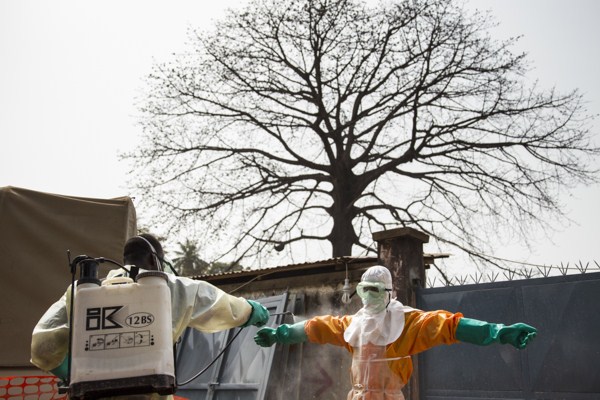On Dec. 28, 2013, a 1-year-old boy named Emile died in Meliandou, Guinea, after having fallen ill with a fever, vomiting and bloody stool. Experts now believe that Emile was the first person to contract Ebola in the current West African outbreak. Since Emile’s death, the World Health Organization (WHO) has identified 22,057 cases of Ebola and 8,844 deaths in 9 countries connected to this epidemic, as of Jan. 28. The current Ebola outbreak has caused more illness and death than all previous outbreaks combined, challenged the ability of the WHO and the international community as a whole to respond to a transnational health crisis and raised questions about the future of global health governance.
At this point, there is reason for some very cautious optimism that the outbreak may be winding down. The number of new cases is decreasing. Tolbert Nyenswah, who coordinates Liberia’s Ebola response, told reporters on Jan. 26 that his country has only five active cases of the disease. Guinea, Liberia and Sierra Leone—the countries that have borne the brunt of the epidemic—report that they have sufficient capacities to isolate and treat patients, properly bury those who die from Ebola and trace most contacts. Senegal even announced on Jan. 26 that it would reopen its land borders with Guinea, which have been closed since August in an effort to prevent the disease from entering the country.
These developments all provide some measure of hope, but it is vital that the international community not lose focus on its containment efforts. A similar decrease in cases in April 2014 led to a relaxation of surveillance and treatment efforts, giving the virus the opportunity to re-establish itself even more vigorously.

